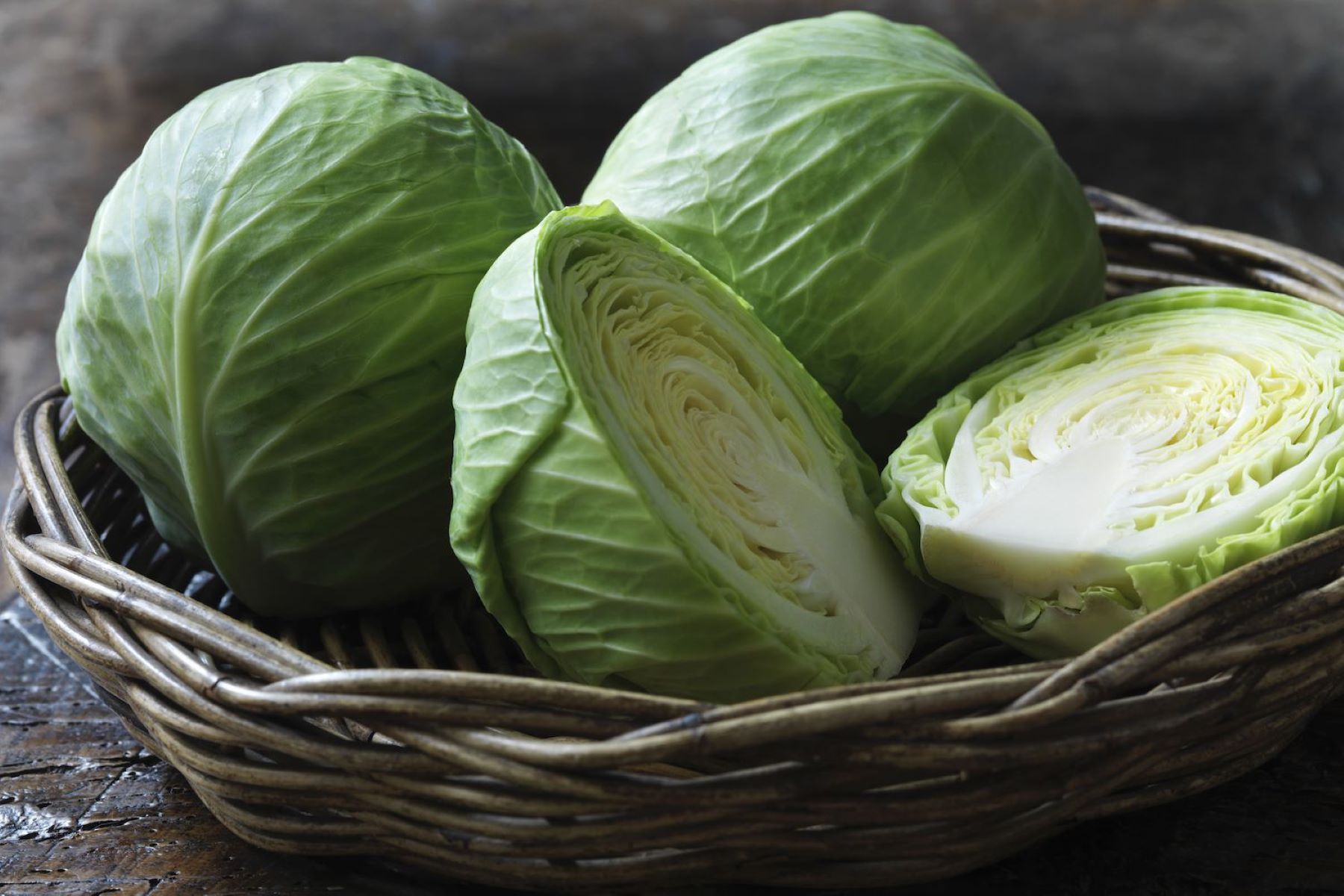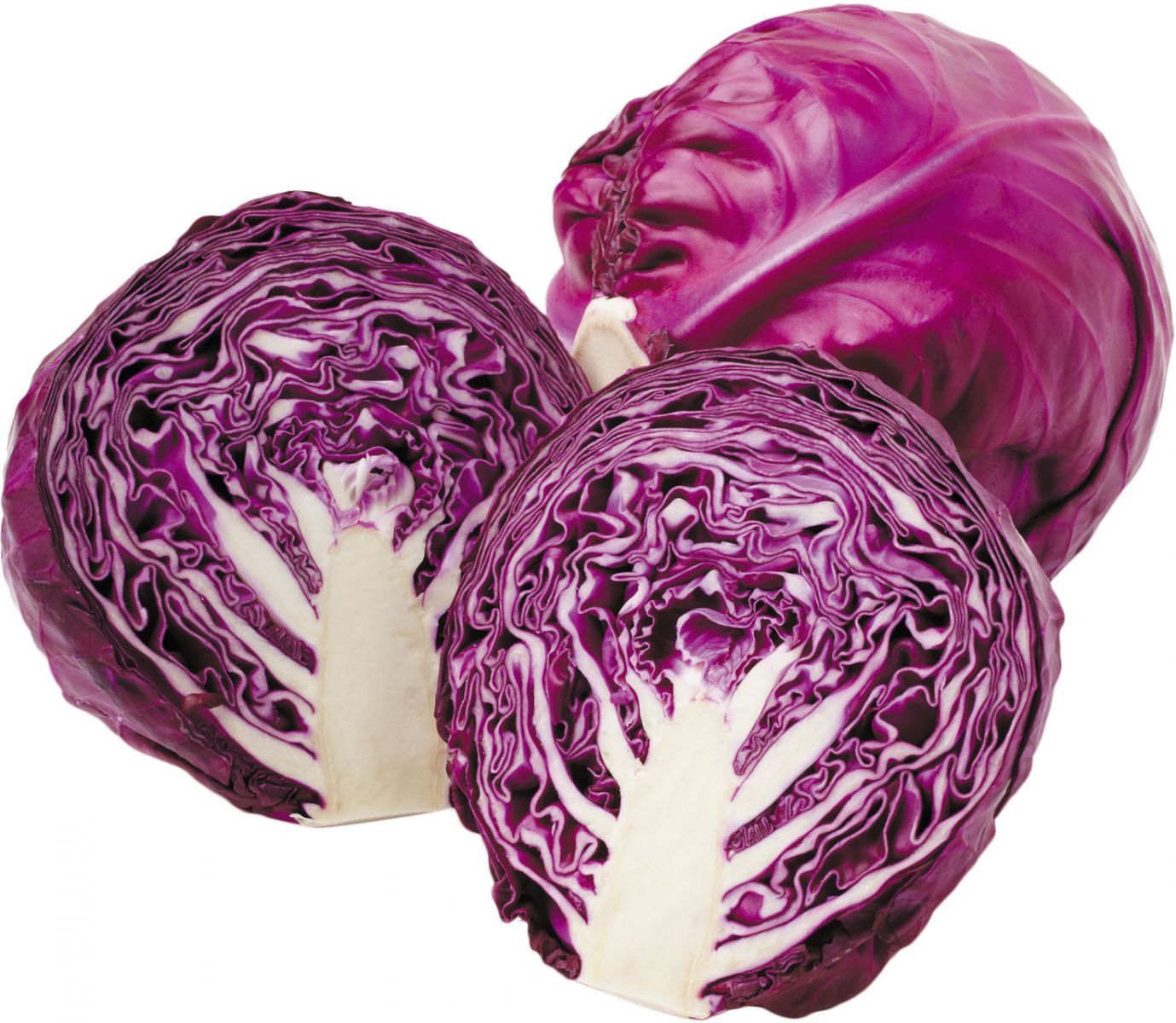Home>Health and Wellness>Surprising Benefits Of Feeding Your Dog Cabbage!


Health and Wellness
Surprising Benefits Of Feeding Your Dog Cabbage!
Published: February 8, 2024
Discover the surprising health and wellness benefits of feeding your dog cabbage, including improved digestion and a stronger immune system. Learn how this simple addition to your pet's diet can promote overall well-being.
(Many of the links in this article redirect to a specific reviewed product. Your purchase of these products through affiliate links helps to generate commission for Regretless.com, at no extra cost. Learn more)
Table of Contents
Introduction
Feeding your dog a balanced and nutritious diet is essential for their overall well-being. While traditional dog food provides essential nutrients, incorporating fresh fruits and vegetables into your dog's diet can offer numerous health benefits. One such surprising addition to your dog's diet is cabbage. Yes, you read that right – cabbage!
Cabbage, a cruciferous vegetable, is not only a versatile and tasty addition to human meals but can also be a beneficial and healthy treat for your furry friend. Packed with essential vitamins, minerals, and fiber, cabbage can contribute to your dog's overall health in various ways.
In this article, we'll explore the often overlooked benefits of feeding cabbage to your dog. From its nutritional value to its potential impact on digestive health, anti-inflammatory properties, weight management, and immune system support, we'll delve into the surprising advantages that this humble vegetable can offer to your canine companion.
So, if you've ever wondered about introducing cabbage into your dog's diet or are simply curious about alternative healthy treats for your pet, read on to discover the numerous benefits of incorporating this unassuming vegetable into your dog's meal plan.
Nutritional Benefits of Cabbage for Dogs
Cabbage is a nutritional powerhouse for dogs, offering a wide array of essential vitamins, minerals, and other beneficial compounds. This cruciferous vegetable is low in calories and high in fiber, making it an excellent addition to your dog's diet. Here are the key nutritional benefits of cabbage for dogs:
1. Vitamins and Minerals
Cabbage is rich in essential vitamins such as vitamin K, vitamin C, and vitamin B6, all of which play vital roles in maintaining your dog's overall health. Vitamin K is crucial for proper blood clotting, while vitamin C supports the immune system and promotes collagen production. Additionally, vitamin B6 aids in energy metabolism and brain function. Furthermore, cabbage contains minerals like manganese, potassium, and calcium, which are essential for bone health, muscle function, and overall well-being.
2. Fiber
Fiber is essential for digestive health, and cabbage is a great source of dietary fiber for dogs. Adequate fiber intake can promote healthy digestion, prevent constipation, and regulate bowel movements. Moreover, fiber can contribute to a feeling of fullness, which may help in weight management for dogs prone to obesity.
3. Antioxidants
Cabbage contains powerful antioxidants, such as flavonoids and polyphenols, which help combat oxidative stress and reduce the risk of chronic diseases. These antioxidants can support your dog's overall health by neutralizing harmful free radicals and reducing inflammation.
4. Low in Calories
For dogs that require weight management or are prone to obesity, cabbage can be a valuable addition to their diet due to its low-calorie content. It provides a nutritious and filling option without significantly increasing calorie intake, making it a healthy choice for dogs needing to shed a few pounds.
5. Hydration
Cabbage has a high water content, which can contribute to your dog's overall hydration. Proper hydration is essential for various bodily functions, including temperature regulation, nutrient transportation, and waste elimination.
Incorporating cabbage into your dog's diet can provide a diverse range of essential nutrients and contribute to their overall well-being. However, it's important to introduce new foods gradually and in moderation to monitor your dog's response and prevent any potential digestive issues. With its impressive nutritional profile, cabbage can be a valuable addition to your dog's diet, offering numerous health benefits that support their overall vitality and longevity.
Digestive Health Benefits
Cabbage offers notable digestive health benefits for dogs, making it a valuable addition to their diet. The high fiber content in cabbage plays a pivotal role in promoting optimal digestive function in dogs. Fiber acts as a natural regulator, aiding in maintaining regular bowel movements and preventing constipation. Additionally, it supports the growth of beneficial gut bacteria, contributing to a healthy and balanced gut microbiome.
Moreover, the fiber in cabbage can help alleviate gastrointestinal issues that dogs may encounter, such as diarrhea or irregular bowel movements. By incorporating cabbage into your dog's diet, you can provide them with a natural source of dietary fiber, which supports overall digestive health and contributes to their well-being.
Furthermore, cabbage contains compounds that possess potential anti-inflammatory properties, which can benefit the digestive system. Inflammation in the gastrointestinal tract can lead to discomfort and digestive disturbances in dogs. The anti-inflammatory properties of cabbage may help in reducing inflammation in the digestive tract, potentially alleviating discomfort and promoting a healthy gut environment for your canine companion.
It's important to note that while cabbage can be beneficial for digestive health, it should be introduced gradually and in moderate amounts, especially for dogs that are not accustomed to consuming vegetables. Sudden dietary changes can lead to digestive upset, so it's advisable to start with small portions of cooked and finely chopped cabbage to assess your dog's tolerance and digestive response.
In summary, the digestive health benefits of cabbage for dogs encompass its high fiber content, potential anti-inflammatory properties, and contribution to a balanced gut microbiome. By incorporating cabbage into your dog's diet in a controlled manner, you can support their digestive well-being and provide them with a natural source of essential nutrients that promote overall gastrointestinal health.
Anti-Inflammatory Properties
Cabbage possesses remarkable anti-inflammatory properties that can have a positive impact on the overall health of dogs. Inflammation is the body's natural response to injury or infection, but chronic inflammation can lead to various health issues, including digestive disturbances, joint pain, and other discomforts. The anti-inflammatory properties found in cabbage can help mitigate inflammation, potentially benefiting dogs in several ways.
One of the key components responsible for the anti-inflammatory effects of cabbage is its high concentration of antioxidants, including flavonoids and polyphenols. These antioxidants play a crucial role in neutralizing harmful free radicals in the body, thereby reducing oxidative stress and inflammation. By incorporating cabbage into a dog's diet, pet owners can provide their furry companions with a natural source of these potent antioxidants, potentially aiding in the reduction of inflammation throughout the body.
Furthermore, cabbage contains phytonutrients, such as sulforaphane and indole-3-carbinol, which have been studied for their anti-inflammatory properties. These compounds have shown potential in modulating inflammatory pathways within the body, contributing to a balanced inflammatory response. For dogs that suffer from inflammatory conditions, such as arthritis or gastrointestinal inflammation, the inclusion of cabbage in their diet may offer a natural and holistic approach to managing these issues.
In addition to its direct anti-inflammatory effects, cabbage's high fiber content can indirectly support a healthy inflammatory response. A well-functioning digestive system plays a significant role in modulating inflammation throughout the body. The fiber in cabbage promotes optimal digestive health, which, in turn, can contribute to a balanced inflammatory state in dogs.
It's important to note that while cabbage can offer anti-inflammatory benefits, it should be introduced gradually into a dog's diet, especially for those not accustomed to consuming vegetables. Monitoring the dog's response and consulting with a veterinarian can help ensure that the introduction of cabbage aligns with the dog's specific health needs and dietary requirements.
In summary, the anti-inflammatory properties of cabbage, attributed to its antioxidant content and phytonutrients, can potentially aid in reducing inflammation and supporting overall well-being in dogs. By incorporating this cruciferous vegetable into a dog's diet, pet owners may provide their canine companions with a natural and nutritious way to promote a healthy inflammatory response and potentially alleviate discomfort associated with inflammation-related conditions.
Weight Management
Weight management is a crucial aspect of maintaining a dog's overall health and well-being. Just like humans, dogs can also struggle with weight issues, which can lead to various health complications if not addressed. Incorporating cabbage into a dog's diet can play a beneficial role in weight management due to several key factors.
First and foremost, cabbage is a low-calorie vegetable, making it an ideal addition to the diet of dogs that require weight management or those prone to obesity. By providing a filling and nutritious option with minimal calories, cabbage can help dogs feel satiated without significantly increasing their calorie intake. This can be particularly advantageous for dogs that need to shed excess pounds or maintain a healthy weight.
Furthermore, the high fiber content in cabbage contributes to weight management in dogs. Fiber plays a crucial role in promoting feelings of fullness and satiety, which can help prevent overeating and unnecessary snacking. By incorporating cabbage into a dog's diet, pet owners can provide their furry companions with a satisfying and fibrous food option that supports weight control.
In addition to its low-calorie and high-fiber characteristics, cabbage is also a hydrating food for dogs. Proper hydration is essential for overall health and can contribute to weight management by supporting metabolic functions and promoting a sense of fullness. By consuming hydrating foods like cabbage, dogs can feel more satisfied and may be less inclined to consume excessive calories from other sources.
Moreover, the nutritional density of cabbage makes it a valuable addition to a weight management plan for dogs. While being low in calories, cabbage is rich in essential vitamins, minerals, and antioxidants, providing dogs with vital nutrients without contributing to excessive calorie intake. This nutrient-dense quality makes cabbage a favorable option for pet owners seeking to manage their dog's weight while ensuring they receive essential dietary elements.
It's important to note that while cabbage can support weight management in dogs, it should be introduced gradually and in moderation, especially for dogs unaccustomed to consuming vegetables. Monitoring the dog's response and weight changes can help determine the effectiveness of incorporating cabbage into their diet as part of a comprehensive weight management strategy.
In summary, cabbage can be a valuable component of a weight management plan for dogs due to its low-calorie nature, high fiber content, hydrating properties, and nutrient density. By incorporating cabbage into a dog's diet in a controlled manner, pet owners can contribute to their canine companion's weight management efforts and overall health, providing them with a nutritious and satisfying dietary option.
Immune System Support
Ensuring that your dog's immune system is robust and resilient is paramount for their overall health and vitality. The immune system serves as a defense mechanism against pathogens, infections, and various environmental stressors, playing a pivotal role in safeguarding your dog's well-being. Interestingly, cabbage can contribute to supporting your dog's immune system through its array of beneficial nutrients and compounds.
One of the key factors that make cabbage beneficial for immune system support is its high vitamin C content. Vitamin C is renowned for its immune-boosting properties, as it plays a crucial role in enhancing the function of immune cells and promoting the production of antibodies. By incorporating cabbage into your dog's diet, you can provide them with a natural source of vitamin C, potentially bolstering their immune response and resilience against illnesses.
Furthermore, cabbage contains essential antioxidants, such as flavonoids and polyphenols, which contribute to its immune-supportive properties. These antioxidants play a vital role in neutralizing free radicals and reducing oxidative stress in the body. By mitigating oxidative stress, cabbage can help maintain the proper functioning of the immune system, ensuring that it remains effective in combating potential threats to your dog's health.
In addition to its immune-boosting nutrients, cabbage's fiber content can indirectly contribute to immune system support. A healthy gut environment is closely linked to a robust immune system, and the fiber in cabbage supports optimal digestive health. A balanced and thriving gut microbiome can positively influence immune function, potentially enhancing your dog's ability to ward off infections and maintain overall immune resilience.
Moreover, the presence of phytonutrients in cabbage, such as sulforaphane, further adds to its immune-supportive qualities. Studies have shown that certain phytonutrients possess immunomodulatory effects, meaning they can help regulate and optimize the immune response in the body. By including cabbage in your dog's diet, you can provide them with a source of these valuable phytonutrients, potentially contributing to the modulation and strengthening of their immune system.
It's important to introduce cabbage gradually into your dog's diet and to consult with a veterinarian, especially if your dog has specific dietary requirements or health considerations. By incorporating cabbage in a controlled and monitored manner, you can potentially enhance your dog's immune system support and contribute to their overall health and well-being.
In summary, the immune system support provided by cabbage stems from its vitamin C content, antioxidant properties, contribution to a healthy gut environment, and the presence of immunomodulatory phytonutrients. By incorporating this versatile cruciferous vegetable into your dog's diet, you can offer them a natural and nutritious means of fortifying their immune system and promoting their long-term health and vitality.
How to Feed Cabbage to Your Dog
Introducing cabbage into your dog's diet requires careful consideration and mindful implementation to ensure that it complements their existing nutrition plan and promotes their overall well-being. Here are essential guidelines for incorporating cabbage into your dog's diet:
1. Preparation:
Before feeding cabbage to your dog, it's crucial to prepare it appropriately. Start by thoroughly washing the cabbage to remove any dirt or pesticides. Next, remove the tough core and chop the cabbage into bite-sized, manageable pieces. For smaller breeds, finely chopping or shredding the cabbage may be more suitable to prevent choking hazards.
2. Cooking:
While dogs can consume raw cabbage, some may find it challenging to digest. Therefore, lightly steaming or boiling the cabbage can make it more palatable and easier for your dog to digest. Avoid adding any seasonings, spices, or oils during the cooking process, as these can be detrimental to your dog's health.
3. Moderation:
As with any new food introduction, moderation is key. Start by offering your dog a small amount of cooked cabbage as a treat or mix it with their regular food. Monitor their response to ensure they tolerate it well and do not experience any digestive discomfort. Gradually increase the portion size if your dog shows a positive response.
4. Frequency:
While cabbage can offer various health benefits, it should not replace your dog's regular balanced diet. It's best to incorporate cabbage as an occasional treat or supplement to their primary food. Overfeeding cabbage or any new food item can lead to digestive upset, so it's essential to exercise caution and moderation.
5. Observation:
Pay close attention to your dog's response after consuming cabbage. Monitor for any signs of digestive upset, such as diarrhea, vomiting, or changes in stool consistency. If you notice any adverse reactions, discontinue feeding cabbage and consult with a veterinarian.
6. Consultation:
Before making significant changes to your dog's diet, especially if they have existing health conditions or dietary restrictions, it's advisable to consult with a veterinarian. They can provide personalized recommendations based on your dog's specific needs and ensure that the introduction of cabbage aligns with their overall health and dietary requirements.
By following these guidelines and introducing cabbage to your dog's diet in a controlled and mindful manner, you can potentially provide them with a nutritious and beneficial addition to their meals. As with any dietary adjustments, it's essential to prioritize your dog's well-being and seek professional guidance when necessary to promote a healthy and balanced diet for your canine companion.
Precautions and Potential Risks
While cabbage can offer numerous health benefits for dogs, it's important to be aware of potential precautions and risks associated with its consumption. Understanding these factors can help pet owners make informed decisions when incorporating cabbage into their dog's diet.
Digestive Sensitivity:
Some dogs may have digestive sensitivities to new foods, including cabbage. Introducing cabbage abruptly or in large quantities can lead to gastrointestinal upset, such as gas, bloating, or diarrhea. To mitigate this risk, it's crucial to introduce cabbage gradually and in moderation. Monitoring your dog's digestive response and adjusting the portion size accordingly is essential to prevent potential digestive disturbances.
Thyroid Interference:
Cruciferous vegetables, including cabbage, contain compounds known as goitrogens, which can interfere with thyroid function in dogs. While the risk of goitrogenic effects from moderate cabbage consumption is generally low, dogs with existing thyroid conditions or those predisposed to thyroid issues may require closer monitoring when introduced to cabbage. Consulting with a veterinarian can provide valuable insights into how cabbage consumption may impact a dog's thyroid health and whether it aligns with their specific dietary considerations.
Allergic Reactions:
While rare, some dogs may exhibit allergic reactions to cabbage. Symptoms of an allergic response can include itching, hives, facial swelling, or gastrointestinal distress. It's essential to monitor your dog closely after introducing cabbage and seek veterinary advice if any signs of allergic reactions manifest. If your dog has a history of food allergies, it's prudent to exercise caution when introducing new foods, including cabbage, into their diet.
Potential Choking Hazard:
When feeding cabbage to dogs, especially larger or less cautious eaters, there is a potential risk of choking. To mitigate this risk, it's advisable to chop or shred the cabbage into appropriately sized pieces to minimize the choking hazard. Additionally, supervising your dog during mealtime can help ensure they consume cabbage safely and without encountering choking-related issues.
Consultation with Veterinarian:
Before incorporating cabbage into your dog's diet, particularly if they have underlying health conditions or dietary sensitivities, consulting with a veterinarian is highly recommended. Veterinarians can provide personalized guidance, taking into account your dog's individual health status and potential risks associated with cabbage consumption. This professional input can help ensure that the introduction of cabbage aligns with your dog's overall well-being and dietary requirements.
By being mindful of these precautions and potential risks, pet owners can make informed decisions regarding the inclusion of cabbage in their dog's diet. Monitoring your dog's response, seeking professional advice when necessary, and introducing cabbage in a controlled manner can help mitigate potential risks and promote a positive dietary experience for your canine companion.
Conclusion
In conclusion, the often overlooked cabbage can be a surprisingly beneficial addition to your dog's diet, offering a spectrum of health advantages that contribute to their overall well-being. From its rich nutritional profile to its potential impact on digestive health, anti-inflammatory properties, weight management benefits, and immune system support, cabbage presents a natural and nutritious option for enhancing your canine companion's diet.
The nutritional benefits of cabbage, including its abundance of essential vitamins, minerals, fiber, and antioxidants, make it a valuable addition to your dog's meals. Notably, the presence of vitamin C, vital for immune function, and the high fiber content, essential for digestive health, underscore the diverse advantages that cabbage can offer.
Moreover, the anti-inflammatory properties of cabbage, attributed to its potent antioxidants and phytonutrients, can potentially aid in mitigating inflammation and promoting a balanced inflammatory response in dogs. This can be particularly beneficial for dogs dealing with inflammatory conditions such as arthritis or gastrointestinal inflammation.
Furthermore, cabbage's role in weight management for dogs cannot be overlooked. Its low-calorie nature, high fiber content, and hydrating properties make it an ideal dietary addition for dogs requiring weight control or those prone to obesity. By providing a satisfying and nutrient-dense option, cabbage supports weight management efforts while ensuring dogs receive essential dietary elements.
The immune system support provided by cabbage, stemming from its immune-boosting nutrients, antioxidant properties, and contribution to a healthy gut environment, can fortify your dog's immune response and resilience against potential illnesses.
When incorporating cabbage into your dog's diet, it's crucial to follow careful guidelines for preparation, moderation, and observation to ensure a smooth and positive dietary transition. Additionally, being mindful of potential risks such as digestive sensitivity, thyroid interference, allergic reactions, and choking hazards can help pet owners make informed decisions and prioritize their dog's well-being.
By introducing cabbage in a controlled and mindful manner, pet owners can potentially provide their canine companions with a natural and nutritious means of enhancing their overall health and vitality. However, consulting with a veterinarian before making significant dietary changes is always advisable, especially for dogs with specific health conditions or dietary sensitivities.
In essence, by recognizing and embracing the surprising benefits of feeding cabbage to your dog, you can take proactive steps toward enriching their diet and promoting their long-term health and happiness.










